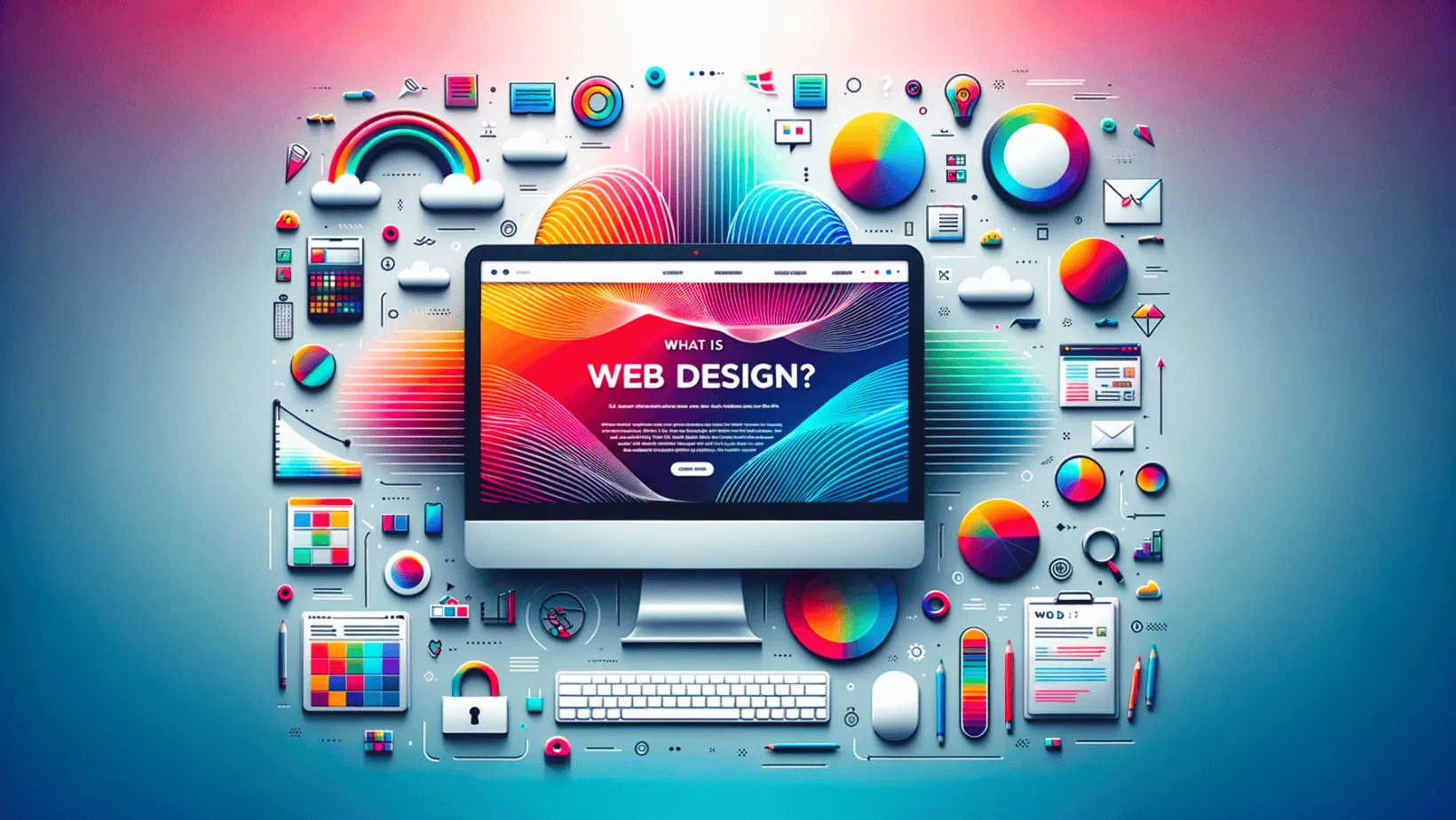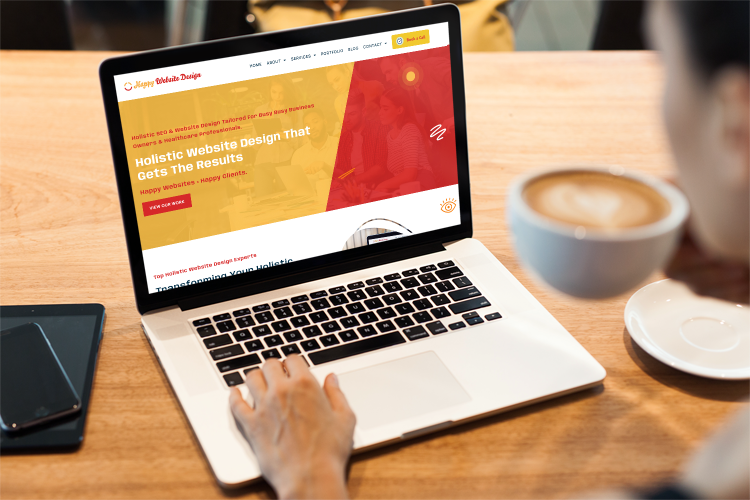Get proven solutions with professional web developers for small businesses assistance.
Why Holistic Web Layout Is the Trick to a Smooth Individual Experience
In today's electronic landscape, the relevance of alternative internet layout can not be overemphasized, as it intricately weaves with each other appearances, functionality, and performance to develop a smooth customer experience. By adopting an extensive method that focuses on individual needs and leverages responses, designers can improve the total interaction with their platforms.
Comprehending Alternative Website Design
Holistic website design incorporates an extensive technique that thinks about every element of the customer experience. This method incorporates numerous elements, including visual appeals, capability, web content, and functionality, to produce a seamless interaction in between the user and the electronic platform. By prioritizing the user's journey, holistic style seeks to straighten the website's structure and web content with the requirements and expectations of its target audience.

In addition, the assimilation of receptive design concepts is critical in fitting numerous tools and display sizes, further boosting the customer experience. By understanding the interconnectedness of these parts, designers can develop sites that not just bring in but also maintain users, inevitably driving engagement and conversions. Holistic website design is, as a result, a strategic method that promotes a purposeful relationship in between customers and digital rooms, paving the method for sustainable online success.

Key Elements of Holistic Layout
A successful all natural design method includes several crucial elements that work in harmony to enhance user experience. One such aspect is user-centered style, which highlights understanding individuals' demands, choices, and habits. web design consulting services. By performing comprehensive study and usability screening, developers can develop tailored remedies that resonate with the target market
Another critical aspect is uniformity in aesthetic and functional elements throughout the internet site. This includes maintaining a cohesive shade scheme, typography, and layout, which assists users navigate the website with ease. Additionally, responsive design is important, guaranteeing that the site performs optimally across numerous devices and display sizes.

Ease of access is also a vital component of holistic layout. By sticking to accessibility requirements, developers can create comprehensive experiences that deal with diverse customer groups, consisting of those with disabilities. The combination of web content strategy makes sure that useful info is provided clearly and succinctly, improving understanding and engagement.

Advantages of a Smooth Experience
Creating a seamless individual experience supplies countless benefits that dramatically improve overall contentment and interaction. At its core, a seamless experience cultivates a sense of convenience and intuition, enabling users to navigate an internet site or application easily. This decrease in friction not just increases the chance of individuals returning but additionally boosts their desire to advise the platform to others.
Additionally, a seamless experience leads to improved conversion prices. When customers find what they need with marginal effort, they are more inclined to complete desired activities, such as purchasing or registering for an e-newsletter. This efficiency translates into greater consumer retention, as satisfied individuals are most likely to come to be dedicated supporters for the brand name.
In addition, a cohesive and smooth user interface reduces cognitive load, permitting users to focus on content rather than fighting with navigating or style disparities (web design consulting services). This clarity not just boosts individual complete satisfaction however also enhances brand credibility. Ultimately, focusing on a smooth customer experience causes a competitive advantage, as companies that purchase this aspect are much better positioned to satisfy the evolving expectations of their audience and drive long-lasting success
Implementing Holistic Techniques
To attain a truly smooth user experience, organizations have to adopt alternative approaches that consider every facet of design and functionality. This method starts with an unified vision that straightens staff member throughout various disciplines, including UX/UI layout, web content growth, and technical execution. Effective collaboration cultivates a shared understanding of user requirements and goals, permitting for even more coherent layout options.
Next, it is important to create user personalities and trip maps that reflect the varied demographics and behaviors of the target audience. By empathizing with individuals' point of views, companies can anticipate challenges and streamline interactions throughout the digital click this link experience.
Furthermore, consistent web link branding and messaging need to permeate every touchpoint, making sure a well-known and trustworthy visibility that improves customer engagement. Incorporating receptive design concepts is also important, as users now interact with material across multiple gadgets.
In addition, organizations ought to focus on availability, ensuring that all customers, no matter ability, can navigate and gain from their digital offerings. By embedding these all natural techniques into the style process, companies can produce a natural and pleasurable customer experience that advertises fulfillment and loyalty.
Gauging Customer Experience Success
While accomplishing an all natural method to website design is essential, gauging user experience success is just as important to make sure that design techniques properly meet user needs. This calls for a mix of qualitative and measurable metrics to acquire a thorough understanding of user communications and fulfillment levels.
Secret efficiency signs (KPIs) such as user involvement, conversion prices, and bounce prices provide beneficial measurable understandings. For instance, a high conversion price might indicate that users discover the style instinctive and engaging. Alternatively, raised bounce rates can signify that customers are disappointed or baffled, demanding a reevaluation of the layout components.
Qualitative actions, including individual responses, surveys, and functionality screening, are critical for obtaining much deeper insights into the individual experience. Evaluating customer comments can expose pain points and locations for enhancement, while use tests allow designers happy web design to observe real-time interactions and identify barriers users encounter.
Eventually, the assimilation of these measurement strategies permits for constant improvement of internet style, ensuring it remains user-centered and reliable in delivering a smooth experience. On a regular basis reviewing these metrics will allow developers to adjust to evolving customer requirements and preferences, strengthening the total success of a holistic website design method.
Conclusion
In verdict, holistic web design emerges as a basic approach to accomplishing a smooth user experience. By incorporating aesthetic appeals, functionality, and use, this style ideology addresses diverse user needs and preferences.